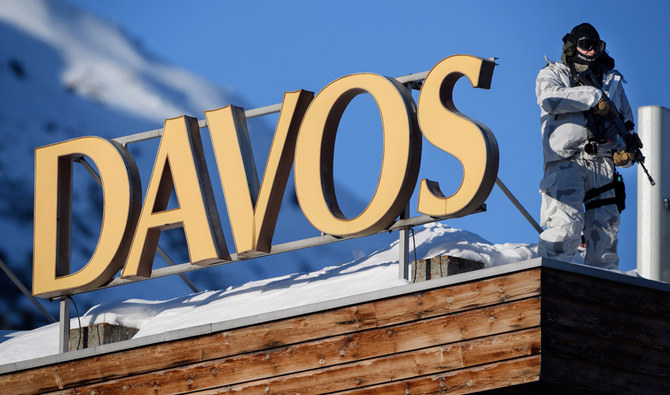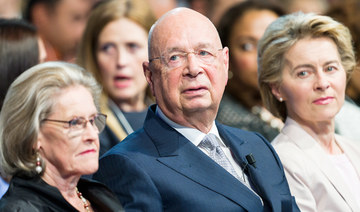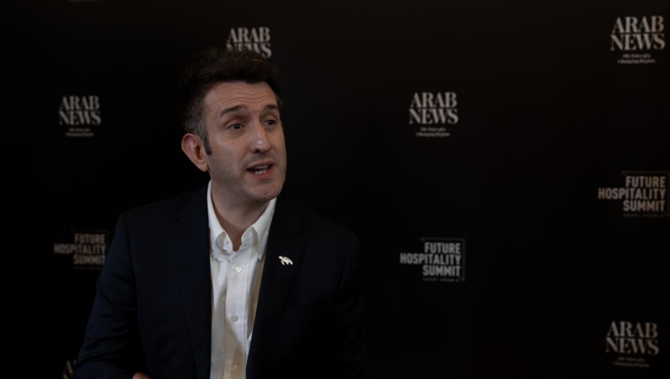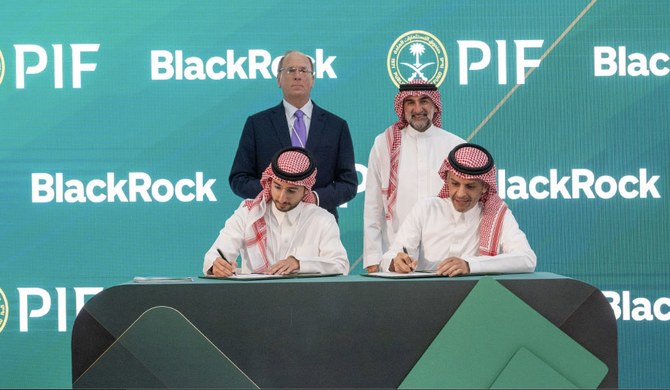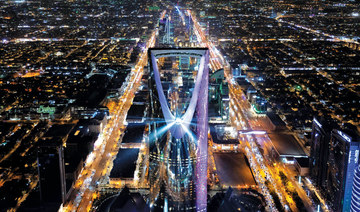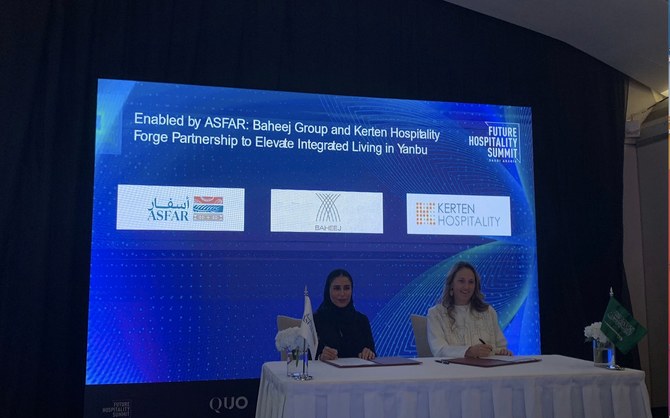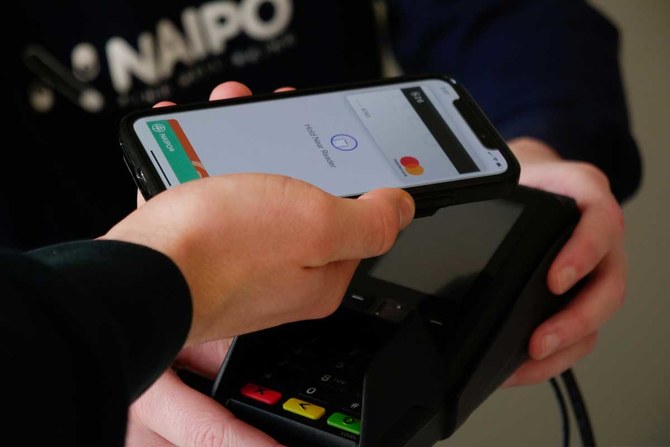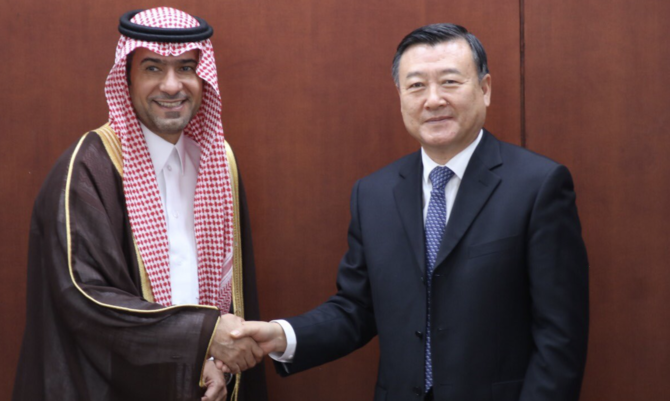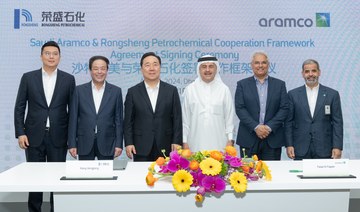DUBAI: It would be fair to say that in 1996, even after 25 years of its glittering annual gatherings, the World Economic Forum (WEF) rarely troubled the front pages — or indeed any pages — of the British tabloid press.
Which is why it was all the more surprising when my editor barked: “Get yourself to Davos!”
Confused, I inquired: “Isn’t that the chief Dalek in Doctor Who?”
“That’s Davros, you fool. Davos is a ski resort in the Swiss Alps where the world’s most powerful and important people meet every year with the aim of making the world a better place.”
The reason for my boss’s newfound interest in alpine matters was that Klaus Schwab, the founder and chairman of WEF, appeared to have assembled a group of key players in the Northern Ireland conflict who, far from appearing in the same room, normally had difficulty sharing the same country.
Even a quarter of a century later, it is impossible to exaggerate the malign and pervasive influence that events in Northern Ireland, the “strife-torn province” of media cliché, had on the UK at that time.
For three decades, a period known euphemistically as “The Troubles” — an area of barely 14,000 square km with a population of less than two million — was awash with heavily armed paramilitary groups known by a bewildering alphabet soup of acronyms: the IRA, Provisional IRA, INLA, IPLO, UDA, UPV, UVF, RHC, LVF — and that was just the bad guys.
The beleaguered police had their own acronym, the RUC.
The terrorists shot, they bombed, they maimed, they killed, mostly each other, admittedly, but an estimated 1,800 innocent civilians died too. And not just in Northern Ireland. The Irish Republican Army (IRA) in particular carried out a series of high-profile bomb attacks in Britain.
In a dynamic that will be familiar to observers of the Middle East, cynical politicians in Northern Ireland exploited and exaggerated an existing sectarian divide — between the Roman Catholic/nationalist/republican tradition, favoring closer links with the Republic of Ireland and eventual unification, and the protestant/unionist/loyalist tradition, favoring closer links with the rest of the UK — to consolidate their own power bases.
And now here was Klaus Schwab bringing together influential representatives of both traditions in a manner that had eluded British and Irish negotiators for years.
An impressive roster it was too: John Hume, the MP and leading nationalist politician; David Trimble, also an MP and the leading unionist politician; Sir Patrick Mayhew, the UK Secretary of State for Northern Ireland; Dick Spring, the Tanaiste, Ireland’s Deputy Prime Minister; and Mitchel McLaughlin, chairman of Sinn Fein, which was the political wing of the IRA — in the sense that Hezbollah is the political wing of Hezbollah.
What could possibly go wrong?
Schwab would have done well to read up on the eminent 19th-century British politician William Ewart Gladstone, of whom it was said that he spent much of his career trying to solve the Irish Question, but every time he thought he was getting warm, the Irish changed the question.
The reconciliation session that Schwab convened took place in private, but he has since described how it went. First, the parties refused to sit at the same table.
Further tables were summoned, but the configuration was deemed unsuitable.
Further configurations were attempted, until all the participants were satisfied that, while still able to talk to each other, they had plausible deniability that they had entered anything remotely resembling negotiations.
What was said at that historic meeting, only the participants know. The immediate aftermath suggests that it was not fruitful.
A month later, the IRA ended a fragile 17-month cease-fire and detonated a massive bomb at Canary Wharf in London’s Docklands, killing two people and causing widespread destruction.
So are there any lessons to be learned from that attempted reconciliation at Davos 1996? Well, yes, two, I think.
First, when did Davos cease to be a forum at which warring parties could at least try to resolve their differences, and turn instead into a self-congratulatory schmooze fest at which everyone agrees with everyone else?
We don’t make peace with our friends, we make peace with our enemies. Our world is not short of sworn enemies — inviting a few to Davos might not end their enmity, but who knows what progress could be made?
Second, just when you think all hope is lost, it isn’t. It is true that 1996 was a bad year for renewed IRA violence, but a year later Tony Blair became British prime minister and turned up the heat under a simmering peace process of which that Davos meeting was a part.
A year after that, in 1998, the Good Friday agreement was signed in Belfast, a democratic power-sharing assembly was established in Northern Ireland, the province’s feuding paramilitaries laid down their weapons — and John Hume and David Trimble, two participants in a Davos meeting that initially appeared to consist chiefly of moving some furniture, were awarded the Nobel Prize for Peace.



